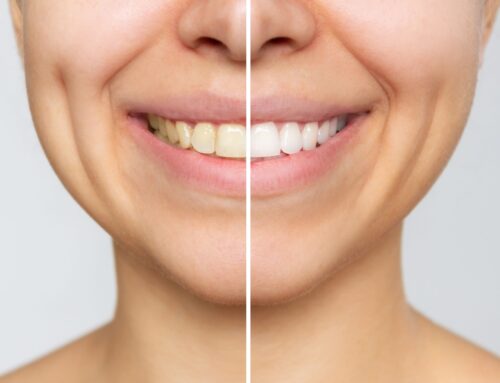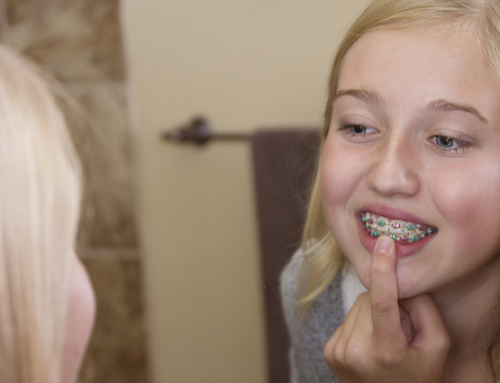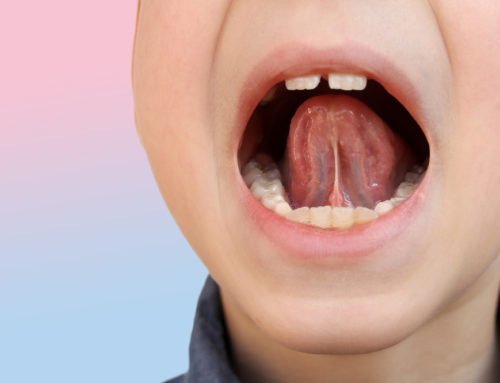Toothaches: Causes, Treatments, and Relief

Parents, you know it always breaks your heart when your child is in pain. And for those of you who have had toothaches, you know just how painful they can be. According to the CDC, cavities are actually “the most common chronic disease of childhood in the United States.” This is because children are often too young to understand good oral healthcare habits. Due to this, it’s important that parents keep an eye out for any signs of distress that may point to a dental problem.
Not only is bad dental health a common problem for children, however, but it’s also a fairly serious one. Cavities can cause toothaches that prevent your child from eating healthy foods or engaging in daily activities. Since those early childhood years are so important to your child’s development, it’s best to ensure that nothing interferes with them.
Let’s look further into what causes toothaches, how to treat them at home, and when to see a dentist.
What is a Toothache?
When it comes to children, a toothache can be somewhat difficult to identify. This is because small children often don’t know what tooth pain feels like yet, or where it’s coming from.
Some signs that your child may be experiencing a toothache are:
- Pain or discomfort in their mouth/teeth.
- Pain in the jaw area.
- Discomfort when chewing or eating.
- Decreased interest in eating.
- Gnawing or a constant need to chew.
Keep in mind children have small mouths and are often unable to identify exactly where a toothache is coming from. Try not to brush off your child’s discomfort, but instead take them for a visit to your family dentist.
What To Do When Your Child Complains Of Toothache
Generally speaking, toothaches mainly occur when one of your teeth is experiencing a problem. This can either be something minor, such as tooth sensitivity, or a serious abscess. Regardless, your first course of action when notified of a toothache should be to take your child to your pediatric or family dentist. Try to do this as soon as possible.
The most important thing is not to ignore the problem – this can lead to a dental condition becoming worse down the line.
What Causes Toothaches and How To Treat Them
There are a variety of oral health conditions that can cause toothaches. Some of these may be minor concerns, but some may be detrimental to your child’s dental health. That’s why it’s always best to consult with a pediatric dentist – they’ll be able to diagnose the cause of the toothache and recommend a course of action to quickly fix the problem.
Here are some possible causes of toothaches in children:
Tooth Sensitivity
In the best-case scenario, your child’s toothache may simply result from a one-off case of tooth sensitivity. In this case, your dentist might merely recommend a fluoride treatment or a specific toothpaste.
Here are some ways to treat tooth sensitivity at home:
- Try flossing the area first, to remove any food lodged between the teeth.
- Have your child rinse with warm salt water.
- Try to avoid too much sugar as the bacteria in the mouth converts sugar to acid, causing tooth aches or sensitivity.
- Have your child brush their teeth or rinse their mouth after they consume sugary foods or drinks.
Cavities
A common and significantly serious cause of toothaches in children are cavities. These are small areas of tooth decay that need to be addressed as soon as possible with a dentist so that the issue doesn’t worsen.
If you sense your child’s toothache is due to a cavity, here are treatment options:
- Contact your child’s dentist immediately so that they can provide a full evaluation of the teeth, and prevent further tooth decay.
- Cold compress to the cheek to soothe pain, and ibuprofen when needed.
- In the meantime, continue practicing good oral hygiene and avoid sugar foods or beverages.
Gum Infections/Diseases
Another serious oral health condition is a gum infection. Although not very common in small children, it still happens occasionally. Some of the symptoms of accompanying gum disease may be swelling, tenderness, or bleeding of the gums.
Tips for treating gum infections/diseases include:
- Contact your child’s dentist immediately for an evaluation and proper treatment plan.
- While waiting to see a dentist, rinse your mouth with warm salt water, continue practicing good oral hygiene, and avoid foods that are high in sugar.
Swollen Gums
If your child’s gums are swollen, it is likely due to inflammation, which can cause pain by putting pressure on the teeth’s nerve endings. The most common cause of gum inflammation is plaque buildup. Plaque is a sticky film of bacteria that constantly forms on your teeth. If not removed, plaque can harden into tartar, which can lead to gum disease.
To reduce swollen gums and inflammation:
- Brush their teeth at least twice a day with a soft-bristled toothbrush.
- Be sure to brush along the gum line and to use gentle circular motions.
- Use an electric toothbrush if you find it easier for your child to control.
- Floss daily to remove plaque and bacteria from between your teeth and under the gum line.
- Rinse with an antibacterial mouthwash to help reduce plaque and bacteria.
If home care measures do not improve your child’s swollen gums, you may need to see your dentist. Your dentist can determine if there is gum disease and develop a treatment plan accordingly. It may be necessary to inject antibiotics or other medicine into the gumline.
Incoming Teeth
A tooth pushing through the gums can trigger pain near surrounding nerves.
If pain from an incoming tooth continues, be sure to:
- Contact your child’s dentist for a proper evaluation, as surgery may be required.
- Manage pain with ibuprofen or a cold compress to the cheeks.
- Continue to practice strong oral hygiene such as brushing teeth twice a day, and flossing after meals.
Injury or Trauma to Teeth
An injury, or trauma to the face can lead to a loose, broken, or cracked tooth that can create a toothache.
Loose teeth can be caused by a variety of things, including gum disease, tooth decay, injury, or even brushing too hard. The best way to deal with tooth pain from loose teeth is to have your child see their dentist.
The dentist will be able to determine the cause of the loose tooth and develop a treatment plan accordingly. In some cases, the tooth may need to be extracted.
If your child has a cracked or broken tooth, it’s important to see their dentist right away. In some cases, the tooth may need to be extracted.
If you are dealing with a child who is in pain from a loose tooth, there are a few things you can do to help ease their discomfort:
- Use over-the-counter pain medication. Ibuprofen or acetaminophen can help reduce inflammation and pain.
- Apply a cold compress to the outside of the mouth. This can help numb the area and reduce swelling.
- Give your child soft foods to eat. Avoid hard or chewy foods that could irritate the gums or cause more pain.
- The best way to prevent toothaches from loose teeth is to practice good oral hygiene. Be sure to brush and floss your child’s teeth daily, and have them see their dentist regularly for check-ups and cleanings.
Seasonal Allergies
Inflamed sinuses around allergy season can put further pressure in the sinus cavities which are close to roots or your top teeth. This is called “referred pain.” The best way to deal with tooth pain from seasonal allergies is to treat the underlying allergy.
Here are some tips:
- Use an over-the-counter antihistamine or nasal spray to help with sneezing, runny nose, and congestion.
- Use a neti pot or saline nasal spray to rinse pollen and other irritants from the sinuses.
- Avoid being outdoors when pollen counts are high, and contact with any known allergies to certain plants.
- Keep the windows closed in your home and car to prevent pollen from coming inside, and vacuum regularly indoors.
- Use a humidifier to add moisture to the air and help relieve congestion.
Canker Sores
These sores can cause pain in the sensitive areas of the mouth’s tissue, making it painful to eat or brush your teeth.They are usually round or oval with a red border typically on the tongue, gums, or inside of the cheek. Canker sores are not contagious, but their exact cause is unknown.
There are a few things you can do to help ease the pain of a canker sore:
- Rinse your child’s mouth with a saltwater solution. Mix 1 teaspoon of salt in 1 cup of warm water and rinse your mouth for 30 seconds. Do this 3-4 times a day.
- Avoid spicy, acidic, or salty foods. These foods can irritate canker sores and make the pain worse.
- Apply a topical numbing agent. You can find these over-the-counter at your local pharmacy.
- The most common causes of toothaches are cavities and rotting teeth, most likely caused by eating too many sugary and processed foods or from lack of proper oral hygiene – for many, it is even a mixture of both! Look inside of your child’s mouth and check for holes or brown spots, often found on the biting surfaces of the teeth and between touching surfaces. If you find anything, be sure to schedule an appointment with your child’s pediatric dentist at Snodgrass-King. We will be able to diagnose the issue quickly for faster relief.
Helpful Home Remedies for Toothaches:
Remember that home remedies are no substitute for a dental professional. Having said that, there are several precautions you can take at home to take care of aching teeth while you are waiting for your dental appointment.
First of all, make an appointment with your dentist as soon as possible. Following that, consult with your family doctor or call your dental office to ask about pain medication for children. There is a good chance they will recommend a few over-the-counter medications to relieve your child’s pain. In this case, remember to carefully read the instructions and proper dosage information.
In the meantime, try encouraging your child to continue brushing and flossing their teeth as normal.
In terms of food – make sure your child continues receiving proper nutrients. Here are a few soft foods that may be easier to consume:
- Cottage Cheese
- Oatmeal
- Smoothies (or other blended fruits/veggies)
- Soups
- Mashed Potatoes
Here are a few at-home remedies to keep in mind to manage pain. These include:
- Applying clove oil to the base of the aching tooth with a cotton ball.
- Placing a cold compress against your child’s cheek (the inflamed side of the face).
- Frozen spoons or fruit popsicles can also help to soothe the pain of teeth internally.
Feel free to call your pediatric dentist for additional guidance on what to do at home.
Preventing Toothaches
Now that you know what to do if your child begins experiencing toothaches, let’s talk about how to prevent them from happening in the first place. Here are some practical tips for preventing toothaches:
- Set Good Oral Hygiene Habits: Set an example for your child on how to properly brush and floss your teeth by doing this habit together! This can mean doing your morning and afternoon oral care routine with your child so that they can learn from a good example first-hand.
- Avoid Too Much Sugar: You may also want to help your child limit their intake of sugars and carbs. Since cavities are created by bacteria feeding off starches in the first place, the longer your child has sugar on their teeth, the longer they’re at risk of plaque forming.
- Visit Your Dentist: Be sure to make an annual, or bi-annual visit, to your dentist. This is an important part of your oral health as dentists can perform proper cleaning, flossing, and make you aware of any signs of decay or damage to your teeth.
Dental Procedures to Treat Toothaches
First off, do not try to “cure” a toothache solely by using home remedies. Instead, take your child in to see your pediatric or family dentist where they can analyze the problem.
Once your dentist cleans and evaluates your child’s teeth, they will most likely recommend a course of action depending on the oral health problem that they find.
Dental Procedures
In a best-case scenario where your dentist does not find any tooth decay, they may recommend a simple fluoride treatment or offer some tips about avoiding acidic foods.
If, however, your dentist identifies a dental or orthodontic problem, here are some of the more common dental procedures that may be recommended for you and your child:
Fillings: For most cavities, your dentist can simply remove the decaying part of the tooth and fill it in. These filings are quick and easy dental procedures that are likely to be resolved in a single office visit. Commonly used materials for fillings include ceramic, resin and plastic (composite), gold, and silver amalgam.
Crowns: Although rare, it is possible for a child to have a significantly large amount of tooth decay. In this case, your dentist may recommend a crown. Don’t worry if this is the case. Your pediatric dentist will most likely be able to offer tooth-colored crowns so that the dental work is minimally visible.
Braces: In some cases, aching or discomfort in the mouth is simply due to overcrowding or overlapping teeth. In this case, your dentist might suggest getting your child braces.
Regardless of your dental needs, Snodgrass-King is happy to be your go-to for any pediatric concerns. Our team of dentists have years of experience under their belt and offer top-of-the-line dental care for children and adults alike.
Frequently Asked Questions About Toothaches
Here are a few last answers to frequently asked questions regarding toothaches.
How To Get Rid Of A Toothache?
The best way to get rid of a toothache is to consult with a dental professional to address the root cause of the pain. Pain that comes from a decaying tooth will not stop until the tooth is fixed.
In short, yes. Many dentists believe that something called the trigeminal nerve is responsible for the link between toothaches and migraines. The pain from a toothache may radiate into the temples or sides of the head. In addition to this, it’s important to note that small children often have a hard time distinguishing the source of a toothache and can easily mistake it for a headache.
What is the 3-3-3 Rule for a Toothache?
The idea of the 3-3-3 rule is a rule to follow when waiting to see your dentist for a toothache. The idea is to consistently take 3 motrins 3 times a day in the 3 days leading up to your visit. This will help to reduce inflammation and pain, until your dentist can see you.*
*This is not medical advice. Please consult your medical provider for the amount of over the counter, anti-inflammatory medicine to consume.
What Can a Toothache Be Mistaken For?
Sometimes a toothache can be a symptom of another underlying issue, separate from the tooth. Other issues that can be mistaken for a toothache include:
- Temporomandibular joint disorder (TMD)
- Lichen planus
- Ear infection(s)
- Teeth grinding
Pediatric Dentist Near Me
Is your child experiencing a toothache? Please do not ignore your child’s or your own oral pain. While some toothaches may go away in a short period of time, others can lead to losing teeth. Yikes! If a good flossing, some Tylenol, and a day of rest don’t alleviate the ache, please request an appointment with us at Snodgrass-King.
Here at Snodgrass-King, we have a team of fantastic dentists ready to lend a helping hand with any dental issues. Whether your child’s toothache is due to a cavity, overcrowding, or simply tooth sensitivity, we can diagnose the problem for you.
The best part? Our team has been working with children and parents for over 30 years, and we know all the tricks. We can help make the visit as easy and comfortable for your child as possible.
In the case that you need more than a pediatric dentist, we even offer dental services for adults. This includes teeth whitening, extractions, cleanings, regular dental check-ups, and much more.
Simply visit this page or call our office to make an appointment. We currently offer services across a variety of office locations throughout Middle Tennessee (Mt. Juliet, Murfreesboro, and the Franklin/Cool Springs area).






